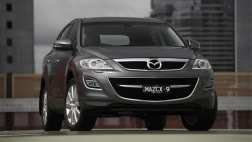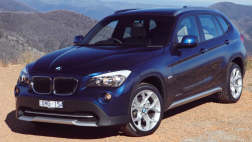And Australian motorists are wasting millions of dollars a year pumping high performance fuels into cars which gain no benefit from the high-profile, high-priced products.
“The oil companies have for years encouraged the view that there is performance benefit in using a higher octane fuel because they sell the premium fuel as a premium product at a premium price,” warns NRMA vehicle specialist Jack Haley.
“Run a Commodore or Falcon or any car designed to run on 91 RON fuel on anything higher and you are just wasting money on octane. There is no advantage of power output simply by putting a higher octane fuel in unless the vehicle is designed to take advantage of it.”
Contrary to widely-held belief, the Research Octane Number (RON) of a fuel is not an indication of power density and does not indicate greater performance potential says Haley.
“It is to do with the chemical makeup of the fuel,” Haley explains. “There are over 100 different hydrocarbons in petrol and by changing the proportion of those different components (during refining) you can change the RON. That has nothing to do with power output, it is entirely the resistance of the fuel to knocking (rough engine running or pinging).
“Most of the vehicles coming out of Europe are designed for 95 RON because that is what they settled on as their standard octane. Some of those will run on 91 RON with some loss of power, but some won't and those engines will `ping'. If you keep putting too low an octane fuel in those cars for a long time then it can lead to long-term engine damage.
“The rule of thumb is one per cent per octane number, so if you go from 98 to 95 in a vehicle designed to run on 98 RON you will lose about 3 per cent of your power output or increase your fuel consumption by 3 per cent. However, if you use 98 RON fuel in a car designed to run on 95 there will be no benefit in power output or fuel efficiency.”
The growing availability of E10 fuel (a 10 per cent ethanol blend with basic unleaded fuel) is adding to the confusion and threatening the warranties of many who regularly us the cheaper fuel in high-end engines.
"Ethanol just adds another level of complexity to the issue," Haley says. "The E10 fuels do have a higher octane rating but it is generally around 93 or 94 which is perfectly suitable for most cars that run on regular unleaded but still not high enough for most European engines.”
The biggest danger is that the majority of those cars requiring the higher octane premium fuels carry a claim to be ‘E10 compatible’ or ‘E10 Suitable’, a claim supported by the fuel companies using a list of ‘compatible’ models issued by the Federal Chamber of Automotive Industries, the car industry's peak manufacturer body.
The compatibility claim for those cars requiring 95 or 98 RON fuel appears to be based on the fact that the engines will indeed run on E10 fuel but not to an optimum level and not without risk of damage which may not be covered by warranty. "The engines in our cars are E10 compatible in that they will run on the fuel but we do not recommend it," VW's Karl Gheling says. "The owners handbook recommends minimum 95 RON fuel and that is what the warranty is based on. "The E10 fuel currently available in Australia is not of a RON number recommended for our engines, but that is not to say a premium blend E10 will not be available in the future."
Mercedes-Benz spokesman David McCarthy says the E10 compatibility for engines rated at 95 and 98 RON should be regarded in the same light as a space-saver spare tyre.
"It will get you out of a hole in an emergency situation but you can not run them long-term. Certainly the cars will run on it to get you to the next fuel station but it shouldn't be used on a regular basis."





.jpg)
.jpg)



.jpg)
.jpg)








Comments